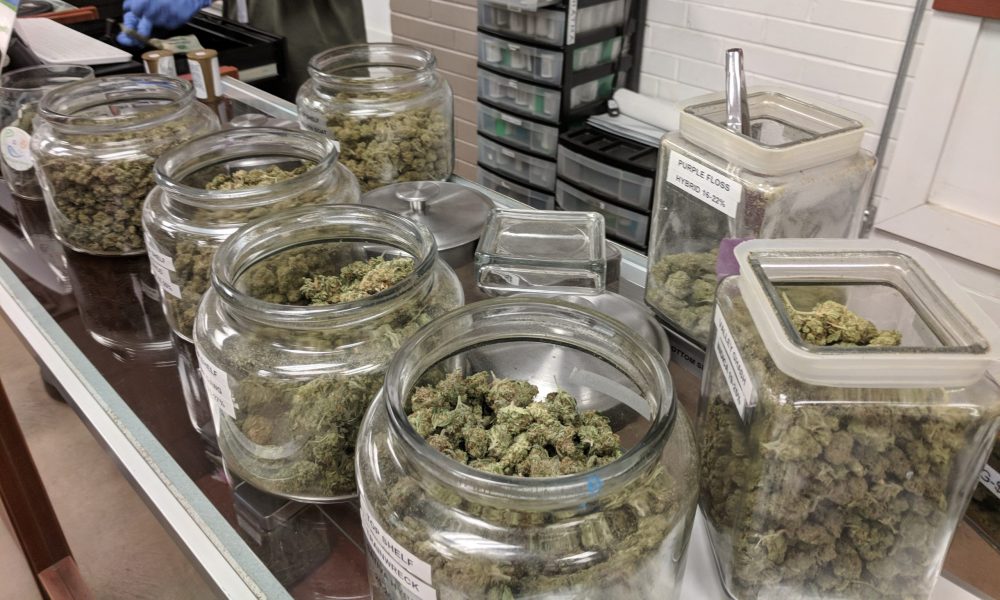People in states where marijuana is illegal are significantly more likely to have used products containing lesser-known cannabinoids like delta-8 THC, signaling that prohibition may “unintentionally promote” usage of the loosely regulated products, according to a new federally funded study published the American Medical Association (AMA).
The research letter, published in the journal JAMA Network Open on Wednesday, contains what it says is the first-ever set of scientific data on use trends for emerging cannabinoids such as delta-8 THC, CBG and CBN, as well as updated numbers of the consumption of CBD products.
Researchers at the University of Michigan, University at Buffalo and Legacy Research Institute analyzed survey data from 1,169 adults from June 22-26. The results showed that use of CBD has increased by 50 percent since 2019, with more than one out of five Americans (21 percent) reporting past-year usage of the non-intoxicating cannabinoid.
That’s a notable progression, likely reflecting the increased availability of CBD and other cannabinoids following the federal legalization of hemp and its derivatives under the 2018 Farm Bill.
Overall, 25 percent of respondents reported using an emerging cannabinoid in the past year. About 12 percent of respondents used delta-8 THC, 5.2 percent used CBG and 4.4 percent used CBN.
“Higher delta-8-THC use in states without medical or adult-use cannabis laws suggests that cannabis prohibition may unintentionally promote delta-8-THC use,” the study says.
Among people who used cannabis in the past year, those living in non-legal states were more than twice as likely to have used delta-8 THC.
This seems to reinforce a broader trend that numerous studies have identified over recent years: providing legal access to regulated marijuana products diverts people away from using unregulated cannabis. In this case, without having that access, people in non-legal states are taking advantage of the grey market of cannabinoids that may be technically legal under federal hemp laws but are increasingly being targeted in state markets due to the lack of regulation and data on health impacts of products like delta-8 THC.
“Based on these results, we support ongoing public health surveillance efforts targeting emerging cannabinoids because of lack of industry standards to protect consumers and similar pharmacology or effects of delta-9-THC and its hemp-derived impairing analogues (eg, delta-8-THC), which may be of particular concern for adolescents and young adults,” the study concludes.
“Our results highlight the importance of future research to better understand perceptions of safety, motivations for use, and outcomes of use of these products,” it says.
The study was partly funded by the National Institute on Drug Abuse (NIDA) and National Institutes of Health (NIH), which publicized a funding opportunity for research projects investigating “minor” cannabinoids last year.
There are mixed perspective about how to address emerging cannabinoids among lawmakers, advocates and industry stakeholders. Some states have moved to ban or restrict their sale, for example. Others are pushing for revised federal rules to regulate intoxicating cannabinoids separately from CBD.
State marijuana regulators have urged Congress to ensure that they’re examining policies for the broader class of emerging cannabinoids—not just CBD.
The expectation is that congressional lawmakers will take up the issue during negotiations over the next Farm Bill—consideration of which has been delayed until next year after the current legislation was temporarily extended.
The Drug Enforcement Administration (DEA) has said that it considers cannabinoids illegal if they’re synthetically produced—as is common practice for delta-8 THC—but the market for such products has flourished nonetheless with limited enforcement.
The Food and Drug Administration (FDA), which has faced criticism for declining to enact CBD regulations, has only lightly address emerging cannabinoid issues. For example, the agency has sent warning letters to various companies that they say are unlawfully selling “copycat” delta-8 THC products that are misleadingly packaged to mimic popular brands like Doritos, Cheetos and Jolly Ranchers.
Virginia Senator Is ‘Confident’ That Bill Legalizing Marijuana Sales Can Reach The Governor’s Desk
Read the full article here

